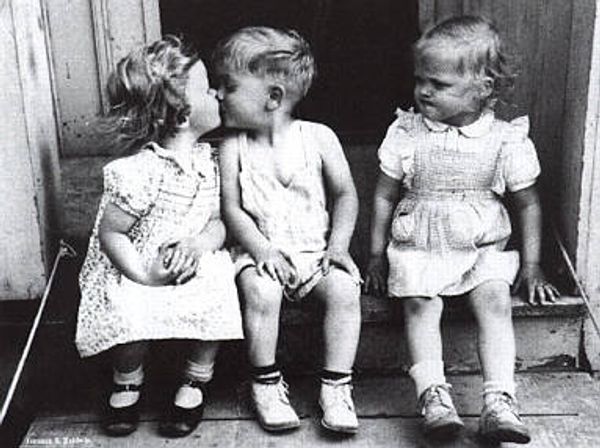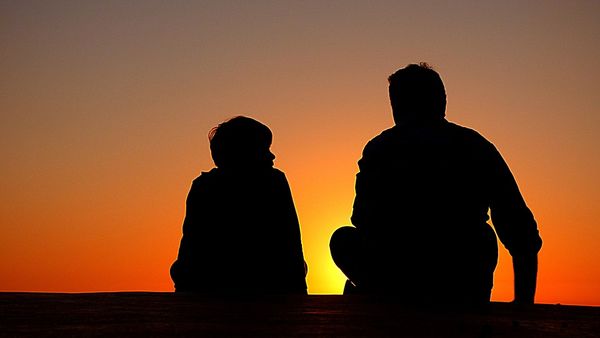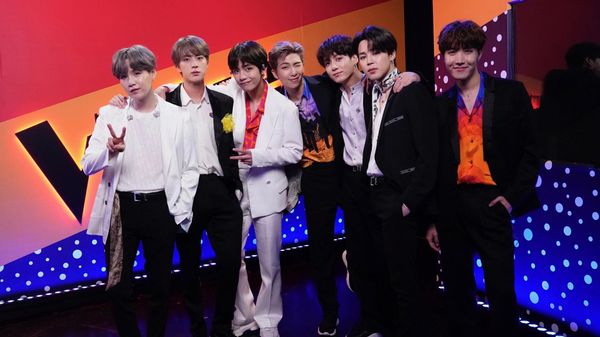I had my first existential crisis when I was 9-years-old on a golf cart path. I was walking while observing everything around me. The sun shone brightly on a clear day, and the trees swayed with the passing of the breeze. I stopped, and my vision blurred for a moment. In a blink of an eye, everything seemed off. Holding my arm out in front of me, I moved my fingers and my wrist. My fingers were clammy, and I could barely feel them. And that's when the questions came rolling in.
What is existence? Do we exist? What happened before time? And the time before that? And before that? How do I know that I'm, well, me and not somebody else in my body? How do I know that my life is mine? How do I know that everyone around me is not actors? How do I know that we're not science experiments? What is real?
It all boiled down to this — am I real?
I was one heck of a kid.
To this day, the question still remains. There are days when I lay on my bed and think about my past, my present and my future. I would think of the universe as a whole, and I would believe that in the grander scheme of things, I was insignificant. We live on a small planet, which is located in a small solar system, which revolves around a small sun, which lays in a small galaxy. I would need to make my mark on the world, and I would need to be great.
But I set my expectations too high, and I end up hurting myself by being hopeful.
And it's times like these when I stress about my future, my goals and my life. If I'm so insignificant and small, then there would be no point of my existence, right? But if that's the case, why am I here? How did I get here?
A couple of days ago, my English teacher brought up a story that made us all question the reality around us.
"Allegory of the Cave," written by the philosopher Plato, describes that knowledge is all perception. In this story, a prisoner is freed from what he considers his world, the dark cave, and is brought to the sunlight. It took him time to adjust, but he learns that there was more to life outside of the cave he's been in his entire life. He goes back to the cave to share this knowledge, only to be laughed at by other prisoners for not being able to adjust his eyes to the darkness once again.
So what is real? To the freed prisoner, he's been living under a false perception his entire life. But to the others, the shadows they see is very much real. Ignorance is a bliss.
There are two physical worlds: the world of senses and the world of reasoning. We are taught the opinions and ideas, but we will never have knowledge without reasoning.
But then, how can you know anything at all?
You can't. And without knowledge, you're left with belief. In your head, what you accept is what is valid. Your coffee mug is tangible, so it is reasonable to assume that it is real. You're feeling heartbreak, and it's affecting you so much that it can't be unreal. Your friends all agree on this opinion, so it must be legitimized, right?
Our reality is perceived by what we view as truth. In other words, our reality is subjective to our opinions, by what you believe. You believe the skies are blue, but to the colorblind, the skies may be purple. You believe that ice cream is the best thing to happen to mankind, but to others, they are cancerous and will make you obese. You believe that you are most powerful sorcerer in the world, but to others, you belong in a mental ward.
But the question still remains — am I real?
SEE ALSO: Every New Year Is Nothing But Chaos, Without The Structure Of Time
Perhaps, we've been living in a world full of lies our entire lives. Perhaps, there's another layer to the world around us that we can't see. Perhaps, it's our emotions that are getting in the way reality.
Though we can never really answer the question of whether we're real or not, we can be optimistic and say "maybe." We can never prove ourselves to be real with a 100 percent certainty, but we can believe that everything around us are. The only way to see if it is "real" is if we go out and experience things ourselves, and perhaps, that's all we need.



















